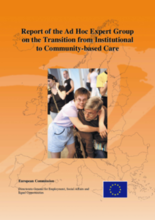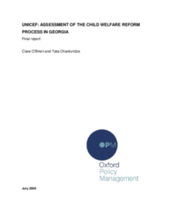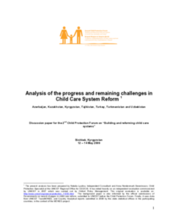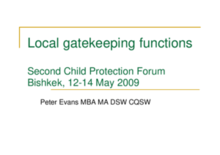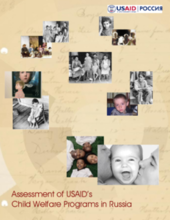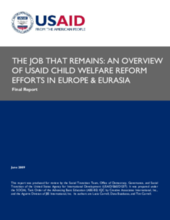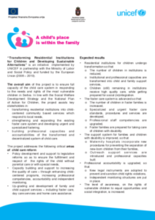Displaying 561 - 570 of 691
This Report was drafted by a group of independent experts convened by Commissioner of the European Commission, Vladimír Špidla, in February 2009 to address the issues of institutional care reform in their complexity. The report addresses recommendations to Member States which have the main responsibility for action in this area.
This report assesses progress in the reform of child welfare services in Georgia between 1999 and 2009.
Developed by the UNICEF Regional Office for Central and Eastern Europe/Commonwealth of Independent States as a discussion paper for the 2nd Child Protection Forum on Building and Reforming Child Care Systems
This presentation, conducted by Peter Evans at the Second Child Protection Forum in Bishkek from 12 to14 May, 2009, includes information on gatekeeping, including a definition, the components of gatekeeping, a flowchart of entry routes for children into institutions, outlines of assessments and intervention plans, monthly monitoring and information systems, and more.
The child welfare programs, funded by USAID in Russia, were designed to pilot, disseminate, and help institutionalize modern child welfare services, particularly, child abandonment prevention and professional support of vulnerable children, child welfare institutions, and substitute families. This report reviews program results and sets out recommendations for future program design.
Examined the eight countries in which USAID supported significant child welfare reform programs: Armenia, Azerbaijan, Belarus, Bosnia-Herzegovina, Georgia, Romania, Russia, and Ukraine. The paper discusses population issues, the current system of child welfare, USAID-funded activities, lessons learned, and best practices.
Analysis of policy and service model used to identify barriers in the delivery of alternative care services for children.
Outlines the project aims, critical areas of child care reform, and expected results of the Serbian initiative: “Transforming Residential Institutions for Children and Developing Sustainable Alternatives”
This Social Welfare Policy is intended to provide direction for reforming the social welfare sector in Liberia.
This paper outlines a vision for the network of services, policies, and programmes necessary to protect children at risk and enable them to reach their full potential, free from violence, exploitation, and abuse.

